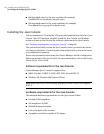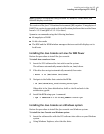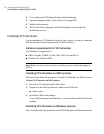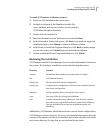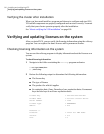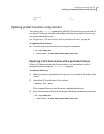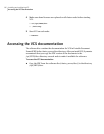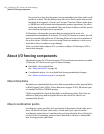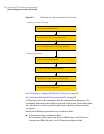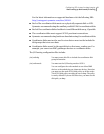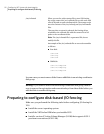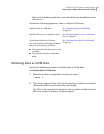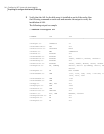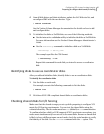
If a system is so busythat itappears to stop responding, the other nodes could
declare it as dead. This declaration may also occur for the nodes that use the
hardware that supports a "break" and "resume" function. When a node drops
to PROM level with a break and subsequently resumes operations, the other
nodesmay declarethe systemdead. They candeclare itdead evenif thesystem
later returns and begins write operations.
I/O fencing is a feature that prevents data corruption in the event of a
communication breakdown in a cluster. VCS uses I/O fencing to remove the risk
that is associatedwith split brain. I/O fencing allows write access for members of
the active cluster. It blocks access to storage from non-members so that even a
node that is alive is unable to cause damage.
After you install and configure VCS, you must configure I/O fencing in VCS to
ensure data integrity.
About I/O fencing components
Theshared storagefor VCS mustsupport SCSI-3persistent reservationsto enable
I/O fencing. VCS involves two types of shared storage:
■ Data disks—Store shared data
See “About data disks” on page 88.
■ Coordination points—Act as a global lock during membership changes
See “About coordination points” on page 88.
About data disks
Datadisks are standarddisk devices fordata storage andare either physicaldisks
or RAID Logical Units (LUNs). These disks must support SCSI-3 PR and are part
of standard VxVM or CVM disk groups.
CVM is responsible for fencing data disks on a disk group basis. Disks that are
added to a disk group and new paths that are discovered for a device are
automatically fenced.
About coordination points
Coordination points provide a lock mechanism to determine which nodes get to
fence off data drives from other nodes. A node must eject a peer from the
coordination points before it can fence the peer from the data drives. Racing for
control of the coordination points to fence data disks is the key to understand
how fencing prevents split brain.
Configuring VCS clusters for data integrity
About I/O fencing components
88



